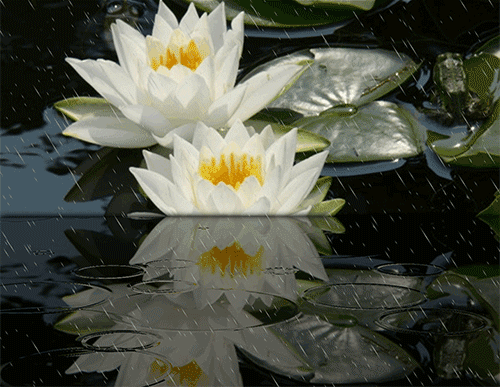A Best friend / pain killer
A best friend is the best pain killer
The ingredients are simple:
Caring and sharing
Source: sms4smile
 g
g
A best friend is the best pain killer
The ingredients are simple:
Caring and sharing
Source: sms4smile
 g
g
Life, while mostly enjoyable, does have its ups and downs. The sun shines on the evil and the good. Pain is an inevitable part of life. Never think that you’ve been singled out for pain. We all seem to understand that physical pain takes time to subside, and as the wound or illness that caused the pain heals, the pain will ease. What we have more trouble with is realizing that emotional pain also takes time to heal.
Endure it. Things that cannot be cured must be endured. It sounds obvious, but sometimes, thinking of emotional pain as if it were physical pain can be very helpful. Think of your broken heart just as if it were your arm that is broken instead. A broken arm takes time to heal, and it hurts like crazy just after it’s broken, even after it’s been set and casted. A few days later, it doesn’t hurt so much. But weeks or even months later, if you bump or jar it, that pain can come roaring back to life with a vengeance. You baby it a little, take care not to aggravate it, and eventually, it’s stronger where it was broken than it was before. You have no choice – you can’t cut off the arm. That won’t make it hurt any less. You just have to endure it while it heals.
Source: wikiHow

No one ever gets tired of loving. But everyone gets tired of waiting, assuming, hearing lies, saying sorry, & hurting. ~Nishan Panwar

You can appreciate your life, even if it is an imperfect situation. Perhaps your apartment is run down and your furniture is old and inexpensive. You do not have to live in a palace. You can relax and let go wherever you are. Wherever you are, it is a palace. — Chogyam Trungpa Rinpoche

Buddhist nuns at the Glory Buddhist temple in Lowell, Massachusetts, U.S.A.
Continue practice into everyday life with a single meditation, always keeping in mind the intention to help others in all activities, eating, dressing, sleeping, walking, or sitting. — Jamgon Kongtrul

Ven. Chhuom Bo, an abbot at the Glory Buddhist temple in Lowell, Massachusetts, U.S.A.
Our teacher, Sakyamuni Buddha, is one among the thousand Buddhas of this aeon. These Buddhas were not Buddhas from the beginning, but were once sentient beings like ourselves. How they came to be Buddhas is this.
Of body and mind, mind is predominant, for body and speech are under the influence of the mind. Afflictions such as desire do not contaminate the nature of the mind, for the nature of the mind is pure, uncontaminated by any taint. Afflictions are peripheral factors of a mind, and through gradually transforming all types of defects, such as these afflictions, the adventitious taints can be completely removed. This state of complete purification is Buddhahood; therefore, Buddhists do not assert that there is any Buddha who has been enlightened from the beginning. — Dalai Lama


Verse 24: If a person is energetic, mindful, pure in his thought, word and deed, and if he does everything with care and consideration, restrains his senses, earns his living according to the Law (Dhamma) and is not unheedful, then, the fame and fortune of that mindful person steadily increase.
While residing at the Veluvana monastery, the Buddha uttered Verse (24) of this book, with reference to Kumbhaghosaka, the banker.
At one time, a plague epidemic broke out in the city of Rajagaha. In the house of the city banker, the servants died on account of this disease; the banker and his wife were also attacked by the same. When they were both down with the disease they told their young son Kumbhaghosaka to leave them and flee from the house and to return only after a long time. They also told him that at such and such a place they had buried a treasure worth forty crores. The son left the city and stayed in a forest for twelve years and then came back to the city.
By that time, he was quite a grown up youth and nobody in the city recognized him. He went to the place where the treasure was hidden and found it was quite intact. But he reasoned and realized that there was no one who could identify him and that if he were to unearth the buried treasure and make use of it people might think a young poor man had accidentally come upon buried treasure and they might report it to the king. In that case, his property would be confiscated and he himself might be manhandled or put in captivity. So he concluded it was not yet time to unearth the treasure and that meanwhile he must find work for his living. Dressed in old clothes Kumbhaghosaka looked for work. He was given the work of waking up and rousing the people to get up early in the morning and of going round announcing that it was time to prepare food, time to fetch carts and yoke the bullocks, etc.
One morning, King Bimbisara heard him. The king, who was a keen judge of voices, commented, “This is the voice of a man of great wealth.” A maid, hearing the king’s remark, sent someone to investigate. He reported that the youth was only a hireling of the labourers. In spite of this report the king repeated the same remark on two subsequent days. Again, enquiries were made but with the same result. The maid thought that this was very strange, so she asked the king to give her permission to go and personally investigate.
Disguised as rustics, the maid and her daughter set out to the place of the labourers. Saying that they were travellers, they asked for shelter and was given accommodation in the house of Kumbhaghosaka just for one night. However, they managed to prolong their stay there. During that period, twice the king proclaimed that a certain ceremony must be performed in the locality of the labourers, and that every household must make contributions. Kumbhaghosaka had no ready cash for such an occasion. So he was forced to get some coins (Kahapanas) from his treasure. As these coins were handed over to the maid, she substituted them with her money and sent the coins to the king. After some time, she sent a message to the king asking him to send some men and summon Kumbhaghosaka to the court. Kumbhaghosaka, very reluctantly, went along with the men. The maid and her daughter also went to the palace, ahead of them.
At the palace, the king told Kumbhaghosaka to speak out the truth and gave him assurance that he would not be harmed on this account. Kumbhaghosaka then admitted that those Kahapanas were his and also that he was the son of the city banker of Rajagaha, who died in the plague epidemic twelve years ago. He further revealed the place where the treasure was hidden. Subsequently, all the buried treasure was brought to the palace; the king made him a banker and gave his daughter in marriage to him.
Afterwards, taking Kumbhaghosaka along with him, the king went to the Buddha at the Veluvana monastery and told him how the youth, though rich, was earning his living as a hireling of the labourers, and how he had appointed the youth a banker.
Then the Buddha spoke in verse as follows:
Verse 24: If a person is energetic, mindful, pure in his thought, word and deed, and if he does every thing with care and consideration, restrains his senses, earns his living according to the Law (Dhamma) and is not unheedful, then, the fame and fortune of that mindful person steadily increase.
At the end of the discourse, Kumbhaghosaka attained Sotapatti Fruition.
Dhammapada Verse 24
Kumbhaghosakasetthi Vatthu
Utthanavato satimato
sucikammassa nisammakarino
sannatassa dhammajivino
appamattassa yaso bhivaddhati.
Source: Tipitaka
If we ourselves remain angry and then sing world peace, it has little meaning. First, our individual self must learn peace. This we can practice. Then we can teach the rest of the world. ~Dalai Lama

Why sit with a sad face full of woe?
You’ll feel much better if a smile you show.
Gloom and sadness depresses all around,
And even will bring you further down.
Sometimes our troubles with others we share,
But no one wants to see a sad face all year.
Woe on your face can make your mouth droop.
Then wrinkles from frowning is what you will coup.
So if you smile, you may even find
Troubles are less troublesome, even if only for a time.
~Written by: Jean Gorney

Photo credit: Randy Neufeldt
1. Pain is part of growing.
Sometimes life closes doors because it’s time to move forward. And that’s a good thing because we often won’t move unless circumstances force us to. When times are tough, remind yourself that no pain comes without a purpose. Move on from what hurt you, but never forget what it taught you. Just because you’re struggling doesn’t mean you’re failing. Every great success requires some type of worthy struggle to get there. Good things take time. Stay patient and stay positive. Everything is going to come together; maybe not immediately, but eventually.Remember that there are two kinds of pain: pain that hurts and pain that changes you. When you roll with life, instead of resisting it, both kinds help you grow.
2. Everything in life is temporary.
Every time it rains, it stops raining. Every time you get hurt, you heal. After darkness there is always light – you are reminded of this every morning, but still you often forget, and instead choose to believe that the night will last forever. It won’t. Nothing lasts forever.So if things are good right now, enjoy it. It won’t last forever. If things are bad, don’t worry because it won’t last forever either. Just because life isn’t easy at the moment, doesn’t mean you can’t laugh. Just because something is bothering you, doesn’t mean you can’t smile. Every moment gives you a new beginning and a new ending. You get a second chance, every second. You just have to take it and make the best of it.
3. Worrying and complaining changes nothing.
Those who complain the most, accomplish the least. It’s always better to attempt to do something great and fail than to attempt to do nothing and succeed. It’s not over if you’ve lost; it’s over when you do nothing but complain about it. If you believe in something, keep trying. Don’t let the shadows of the past darken the doorstep of your future. Spending today complaining about yesterday won’t make tomorrow any brighter. Take action instead. Let what you’ve learned improve how you live. Make a change and never look back.
And regardless of what happens in the long run, remember that true happiness begins to arrive only when you stop complaining about your problems and you start being grateful for all the problems you don’t have. Continue reading